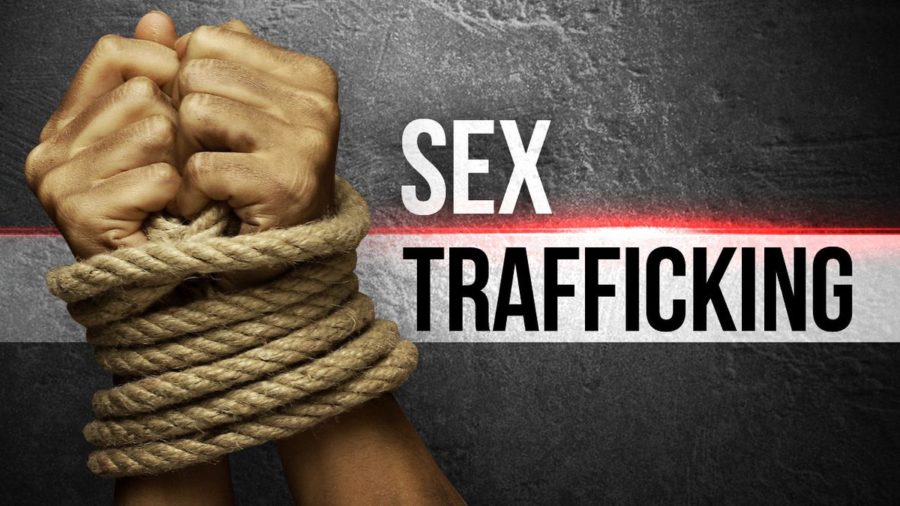What is sex trafficking?
January 28, 2021
Content Warning: Information about sex trafficking and violence is included in this article.
Slavery has been deemed illegal in many countries throughout the world; however, many forms of modern-day slavery remain, including sex trafficking.
Sex trafficking can be defined as the recruitment, harboring, transportation, provision, obtaining, patronizing or soliciting of a person for the purpose of a commercial sex act. It involves the use of force, fraud or coercion to make an adult engage in commercial sex acts. However, any commercial sexual activity with a minor, even without force, fraud or coercion, is considered trafficking, according to the Centers for Disease Control and Prevention.
Alissa Stoehr, assistant teaching professor of sociology and women’s and gender studies, has a similar definition, in which she described sex trafficking as something that occurs when someone exploits the vulnerabilities of another to force them into unwanted sexual contact with another. A trafficker can also groom another to think there is nothing wrong with what they are doing and that the trafficker is only helping the victim out.
The most common age of sex trafficking is ages 14 to 16, according to Shared Hope. However, Stoehr explained that anyone of any age can be sex trafficked.
“Anyone can be trafficked,” Stoehr said. “We all have vulnerabilities that can be exploited. These vulnerabilities may be found more in disenfranchised and vulnerable communities, such as the homeless, people with addictions, youth, the elderly, runaways, etc.”
Many people have a hard time considering that sex trafficking is happening in the United States, let alone their individual cities. Stoehr said this is due to ignorance.
“I think that most people are still ignorant about what human trafficking actually is because they do not want to think it happens in their town, and it just happens in large cities or other countries,” Stoehr said. “Therefore, they might be more partial to believe ‘fake news’ or any other reports. If someone says it is trafficking, then it must be.”
However, the United States is considered a source, transit and destination country for sex trafficking victims. Trafficked men, women and children are typically taken to brothels, escort services, massage parlors, strip clubs or hotels and are prostituted on the streets or forced to participate in pornography, according to End Slavery Now.
Stoehr explained that sex trafficking is prevalent across the United States and world, especially due to highway systems and small towns.
Stoehr went on to say that Ames has even been impacted by sex trafficking.
“There have been reported and confirmed cases of sex trafficking in Ames,” Stoehr said. “Traffickers will befriend someone through the grooming and recruitment process and get them involved in something before the victim knows what is happening. Traffickers will use ‘legitimate’ job opportunities to try and recruit individuals, which can end up being either sex or labor trafficking.”
The CDC said more research is needed to evaluate programs and policies that help reduce factors that put people at risk in order to help prevent trafficking before it occurs. However, strategies based on the best-available evidence exist to prevent related forms of violence and may also reduce sex trafficking. Ways states and communities can implement and evaluate efforts is to encourage healthy behaviors in relationships, foster safe homes and neighborhoods, identify and address vulnerabilities during health care visits, reduce demand for commercial sex and end business profits from trafficking-related transactions.
Stoehr added that people should be constantly aware of their surroundings. So, when an opportunity that sounds too good to be true is presented to an individual, they know that it probably is too good to be true.
If you or someone you know are being sex trafficked, call the National Human Trafficking Hotline at 1-(888)-373-7888 to report suspected trafficking cases or to get more information. This hotline is answered 24/7, 365 days a year in over 200 languages.
People can use other resources as well, such as:
-
An individual can live chat with the Human Trafficking Hotline.
-
An individual can submit an online tip.
-
An individual can text The Polaris Project textline: text ‘HELP’ at 233733.
-
An individual can call the state of Iowa’s Human Trafficking Hotline: 1-(800)-770-1650.
-
Or an individual can text “iowahelp” to 20121.

















